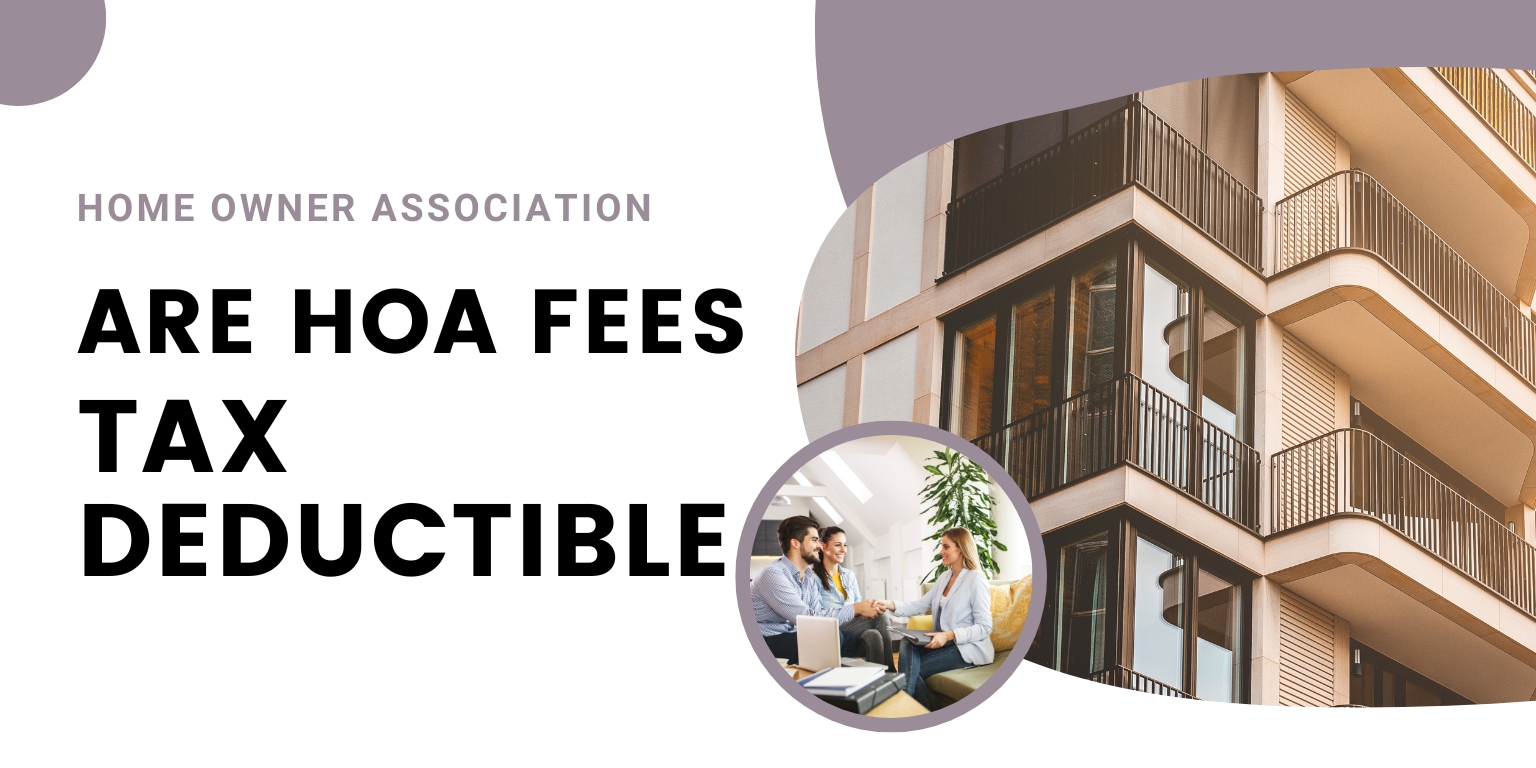If you are a Homeowners who pay HOA fees may wonder: are HOA fees tax deductible? HOA fees are the monthly or quarterly payments that you make to your homeowner’s association (HOA) to cover the maintenance and upkeep of the common areas and amenities in your community.
The answer to whether HOA fees are tax deductible depends on how you use your property and what type of HOA fees you pay. In general, HOA fees are not tax deductible for homeowners who use their property as their primary residence. However, there are some exceptions and special cases that may allow you to deduct some or all of your HOA fees from your taxes.
When Can You Deduct HOA Fees from Your Taxes?
There are three main scenarios when you may be able to deduct HOA fees from your taxes:
- You rent out your property
- You work from home
- You pay a special assessment for capital improvements
Are HOA Fees Tax Deductible for Rental Properties?
If you own a property that is part of an HOA and you rent it out to tenants, you can deduct your HOA fees as a rental expense on Schedule E of your tax return. Rental expenses are the costs of operating and maintaining your rental property, such as mortgage interest, property taxes, repairs, utilities, insurance, and HOA fees.
However, if you also use the property for personal purposes for part of the year, you can only deduct a portion of your HOA fees that corresponds to the percentage of time that the property was rented out. For example, if you rent out your property for six months and use it as your vacation home for the other six months, you can only deduct 50% of your HOA fees.
Are HOA Fees Tax Deductible for Home Offices?
If you are self-employed and use part of your home as your principal place of business, you may be able to deduct a portion of your HOA fees as a home office expense on Schedule C of your tax return. Home office expenses are the costs of using and maintaining the part of your home that you use for business purposes, such as rent, mortgage interest, property taxes, utilities, repairs, insurance, and HOA fees.
To qualify for the home office deduction, you must meet two requirements:
- You must use a specific area of your home exclusively and regularly for your business activities.
- You must use that area as your principal place of business or as a place where you meet clients or customers.
The amount of HOA fees that you can deduct depends on how much of your home you use for business purposes. You can calculate this by dividing the square footage of your home office by the total square footage of your home. For example, if your home office is 200 square feet and your home is 2,000 square feet, you can deduct 10% of your HOA fees.
Alternatively, you can use a simplified method to calculate your home office deduction. This method allows you to deduct $5 per square foot of your home office, up to a maximum of 300 square feet or $1,500. However, this method may not be beneficial if your actual expenses are higher than the standard amount.

You Pay a Special Assessment for Capital Improvements
Sometimes, an HOA may charge a one-time special assessment to raise funds for a major project that improves the value or quality of the community, such as building a new pool or replacing a roof. These special assessments are different from regular HOA fees that cover ongoing maintenance and operating costs.
While special assessments are not tax deductible as an expense, they may increase the cost basis of your home. The cost basis is the original purchase price plus any improvements that you make to the property. A higher cost basis can reduce your taxable gain when you sell your property or increase your deductible loss.
However, not all special assessments qualify as capital improvements. According to the IRS, a capital improvement must meet three criteria:
- It adds value or extends the useful life of the property
- It adapts the property to a new or different use
- It is expected to last more than one year
For example, a special assessment for painting the exterior walls of the building may not qualify as a capital improvement because it does not add value or extend the useful life of the property. On the other hand, a special assessment for installing solar panels may qualify as a capital improvement because it adds value and adapts the property to a new use.
If you pay a special assessment that qualifies as a capital improvement, you can add it to your cost basis in the year that you pay it. However, you cannot deduct it from your taxes in that year. You can only benefit from it when you sell your property or claim a casualty loss.
How to Deduct HOA Fees
If you are eligible to deduct HOA fees from your taxes, you need to keep track of how much you pay and what type of HOA fees they are. You also need to keep receipts or statements from your HOA that show the amount and purpose of the fees.
To deduct HOA fees as rental expenses, you need to report them on Schedule E of your tax return, along with your other rental income and expenses. You can deduct the full amount of HOA fees that you pay for the rental property unless you also use the property for personal purposes.
To deduct HOA fees as a home office expense, you need to report them on Schedule C of your tax return, along with your other business income and expenses. You can deduct a percentage of HOA fees that corresponds to the percentage of your home that you use for business purposes, or use the simplified method to deduct a standard amount per square foot.
To deduct HOA fees as a capital improvement, you need to add them to your cost basis in the year that you pay them. You cannot deduct them from your taxes in that year. You can only benefit from them when you sell your property or claim a casualty loss.
Learn About Other Potential Tax Breaks
HOA fees are not tax deductible for most homeowners, but there are some exceptions and special cases that may allow you to deduct some or all of your HOA fees from your taxes. If you rent out your property, work from home, or pay a special assessment for capital improvements, you may be able to save money on your taxes by deducting HOA fees.
However, HOA fees are not the only potential tax break that homeowners can take advantage of. There are other tax deductions and credits that can lower your tax bill, such as:
- Mortgage interest deduction
- Property tax deduction
- Home equity loan interest deduction
- Mortgage insurance premium deduction
- Residential energy credit
- Homebuyer credit
- Moving expense deduction
To learn more about these and other tax benefits for homeowners, you may want to consult a tax professional who can help you maximize your savings and avoid mistakes. A tax professional can also help you with other tax-related issues, such as filing your tax return, resolving tax problems, or planning for future tax events.
If you are looking for a reliable and affordable tax professional, you can try us and compare the best tax services in your area. Whether you need help with personal or business taxes, we can match you with the right tax expert for your needs and budget. Just answer a few questions about your situation and preferences, and we will provide you with personalized quotes from top-rated tax professionals near you. You can then compare their profiles, reviews, ratings, and fees, and choose the one that suits you best.
Don’t miss out on the potential tax breaks that homeownership can offer. Find out if you can deduct HOA fees from your taxes and learn about other ways to save money on your taxes with the help of a qualified tax professional. Start your search today and get ready to enjoy the benefits of being a homeowner.
Are HOA Fees Tax Deductible? This is a common question that homeowners have, as HOA fees can be a significant expense. The answer to this question depends on how the fees are used. Regular HOA fees that cover ongoing maintenance and operating costs are not tax-deductible. However, special assessments that are used to fund improvements to the property may be tax-deductible.





